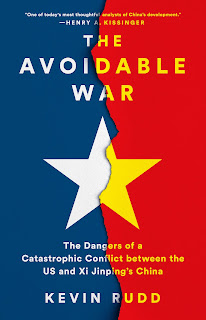Last year, I published an academic journal article on the topic of retelling the Icelandic family sagas. Research for that article took me to Linda Hutcheon's book, A Theory of Adaptation, which describes adaptation in positive terms as a process of engagement - rather than as a derivative or inferior art form, as has often been felt by critics in the past.
Seeing adaptation as a process that can lead to many different outcomes - each with its own goals, formal constraints, audiences, and so on - is also an insightful way to think about saga composition, which over the centuries has traversed a number of different oral and written forms. Looking at saga composition this way can release the adaptive process from strict notions of fidelity to a singular 'original' text, for in fact there are many such 'originals', which tell and perform a story in their own ways. When we write or film or retell a medieval saga, we are also responding to a thousand years of that saga's performance and reception - many iterations and versions.
This week, I've been giving more thought to all this during conversations at Outspoken Maleny with Steven Lang, and at two events, one with Krissy Kneen and the other with Hannah Kent, at the Brisbane Writers Festival. A recurring topic point in conversations that I've had with others about historical novels is about how we balance the seemingly competing pushes of fidelity and alteration, especially in relation to style. On a few occasions, I've been asked whether I wished to retain the original style and ethical outlook of the sagas, and how did I think modern readers would handle the strangeness or alien quality of the world they portray.
One part of the adaptive process, especially in the case of fiction dealing with the past, is this question of how far we want to go in order to meet the expectations of the modern reader, and at what point doing so means that we're no longer meeting the characters of the earlier stories. When there is a tension between the two, I hope I manage to privilege the latter, for if the style and ethos of a novel is very distant from the original work, it will lose sight of its own origins as a project of meeting the people of the past and trying to see things from their perspective. But of course it's an imperfect meeting always, because an adaptation and retelling instantly becomes its own moment and mode of engagement. While I agree with Hutcheon and her theory of adaptation, I think I am also quite slow to admit it into my own work, where fidelity remains a kind of goal, if not a true possibility.
*
 |
| Sunbathing books (pic: Brisbane Writers Festival) |
On the topic of meetings, this week when I was at Maleny it was as the first speaker at an event that in the main featured the former Australian prime minister Kevin Rudd, who has published a book about China-America relations called The Avoidable War. As ever when I speak at events with other authors, the cross-overs between books and ideas seem oddly numerous, even when the subject matter is separated by centuries and continents. I believe the interviews will be soon uploaded to the series's website here.
 |
| The Avoidable War by Kevin Rudd |
 |
| (Pic: Outspoken Maleny) |